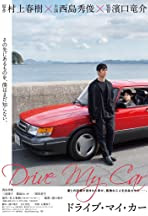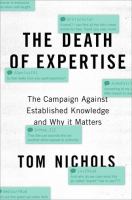"Chale Chalo: The Lunacy of Film Making" is almost 2 1/2 hours long
and tries to give an idea of the efforts to make "Lagaan: Once Upon a Time in India" (2001) the
classic it became. But "Lagaan" is even longer at 3 hours and 44 minutes and
it is very likely many details were skipped over which is just as well
as the process was overwhelming.
"Lagaan: Once Upon a Time in India" (2001) had been recommended by my sister Rebecca and I enjoyed it, becoming my introduction to Bollywood. I was annoyed by Aamir Khan who has since become a favorite. This making of film reinforces my respect for Aamir who does much more than just act.
Ashutosh Gowariker , the director and writer originally developed an idea that involved British colonists being challenged to a cricket match by unsophisticated Indian natives in an attempt to get tax relief, but risking even higher taxes. He approached Aamir Khan who saw it as an undesirable sports film and turned down the offer twice before Ashutosh Gowariker convinced him to take a closer look. Aamir loved the script. Eventually Aamir became intimately involved, not only being the lead actor, but a producer and even making this film his first under Aamir Khan Productions.
I didn't consciously appreciate A. R. Rahman at this point, but this
film contains one of my very favorite songs with a sort of love
triangle and they do show a few snippets. Aamir Khan negotiated with
Rahman looking for a commitment while A.R. had questions that annoyed Khan, but were resolved. A.R. Rahman went on to win two Oscars for "Slumdog Millionaire" (2008). He is one of my very favorite film composers.
Most expensive Bollywood film until then. Part of the problem was one of the locations and the large cast that included a lot of overseas talent from England.
The script called for cloudless days. Most of the filming was done in and near an actual village. Bhuj was the nearest city and it had no hotel. Production had to build one and to accommodate toilets acceptable for the British cast. Cast and crew were bused to filming location daily. There were days when clouds cancelled filming and overhead jets from a nearby military base cut into camera time. The heat often caused problems. To provide crowd scenes they needed 10,000 villager who all needed to be fed and provided with appropriate costumes. All of this caused stresses on the schedule and the budget and at one time stopping the project was considered.
Further stress came from the cricket match that wasn't as smooth as predicted. They had to take many more takes than expected to get the effect needed. One Indian actor really bombed and it was decided to do closeups, catch the swing, but not the ball. The British male actors had been selected for cricket experience, but a few of them needed lots of shots. The British knew they would lose match in film, but insisted on a real match with crew and in fact the British did win.
Towards the end of the filming Ashutosh had a slipped disc and was told he had to rest for one month, but they could not afford to shut down. With a big stake in the film he agreed to direct with the help of a mobile bed. He was in pain, but was able to finish the filming.
A few points of interest to film buffs were included.
Some of the British actors had to learn some Hindi, notably Paul Blackthorne and Rachel Shelly. .A couple from the British crew got married in traditional Hindu style. Rachel Shelley made a few frank comments regarding relationships during the shooting time which meant for the British that for several months they were in close quarters far from home. They would also form attachments to the Indian crew and cast realizing they might never meet again.
After the filming was done and turned to a finished product there was a major earthquake in the village area they had filmed in. People who had participated in the crowd scenes and performed various chores were affected including deaths. Aamir made a trip back to Bhuj to present the finished film. He anticipated a glum response, but in fact the villagers were delighted.
Obviously many elements for the documentary were planned and done during
the original filming However it takes additional contributions to help
us appreciate what is required to let the viewers have a better
understanding.
Aamir had made his wife Reena Dutta the production manager. A few months later they divorced. Also on the staff was Kiran Rao as the third assistant director. A few years later Aamir married her, but more recently they have divorced.
Reema Kagti was another assistant director who has since been involved as a writer and director, often pairing up with Zoe Akhtar. Her film credits include: "Zindagi Na Milegi Dobara" (2011), "Talaash" (2011), "Dil Dhadakne Do" (2015) and "Gully Boy" (2019). http://www.therealjohndavidson.com/2019/05/three-bollywood-films-that-got-my.html
Another assistant director was Dr. Priyamvada Narayanan, who found her medical training useful during the filming. She has been involved with two other films, including "Talaash." She is also a psychiatrist practicing in Los Angeles.
Vipin Bhati, the writer has been a sound designer including for "Lagaan: Once Upon a Time in India" and Chale Chalo: The Lunacy of Film Making" Other films including for sound work credit: "Dor" (2006), "Bombay to Bangkok" (2008), "Jodhaa Akbar" (2008), "8 x 10 Tasveer" (2009), "Asshayein" (2010), "Mod" (2011) and "Lakshmi" (2014),
Aamir Khan is one of the premier actors and film makers in the world. As he got established he became an actor who concentrated on one film at a time. Abstains from drinking and smoking, but will do so if film role requires it. Related to filmmakers he started as a child actor, but became a star with "Qayamat Se Qayamat Tak" (1988). Most of his films were successful at the box office including "Dil Chata Hai" (2001), "Mangal Pandey" (2005), "Like Stars on Earth" (2007), "Ghajini" (2008), "3 Idiots" (2009), "PK (2014), "Dangal" (2016) and "Secret Superstar" (2017). "Lagaan" started his success in the Chinese market (meaning he was at various times the most famous actor in the world--two huge markets). Check: http://www.therealjohndavidson.com/2011/07/dil-chatha-hai-bollywood-classic.html and http://www.therealjohndavidson.com/2015/03/pk.html
Ashutosh Gowariker started as an actor and met Aamir Khan in "Holi" (1984). Some of his credits include. "Swades" (2004), "Jodhaa Akbar" (2008) and "Mohenjo Daro" (2016). As an actor he appeared in Hindi and Marathi films, tv. shows and commercials before having scripts accepted and associated directing jobs.
As usual I have bolded the first mention of movies I have seen.
















